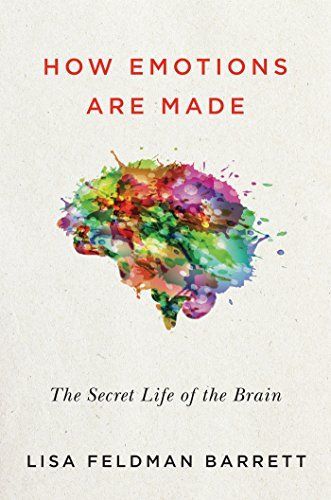
How Emotions Are Made The New Science of the Mind and Brain
A new theory of how the brain constructs emotions that could revolutionize psychology, health care, law enforcement, and our understanding of the human mind Emotions feel automatic to us; that's why scientists have long assumed that emotions are hardwired in the body or the brain. Today, however, the science of emotion is in the midst of a revolution on par with the discovery of relativity in physics and natural selection in biology. This paradigm shift has far-reaching implications not only for psychology but also medicine, the legal system, airport security, child-rearing, and even meditation. Leading the charge is psychologist and neuroscientist Lisa Feldman Barrett, whose theory of emotion is driving a deeper understanding of the mind and brain, and what it means to be human. Her research overturns the widely held belief that emotions are housed in different parts of the brain, and are universally expressed and recognized. Instead, emotion is constructed in the moment by core systems interacting across the whole brain, aided by a lifetime of learning. Are emotions more than automatic reactions? Does rational thought really control emotion? How does emotion affect disease? How can you make your children more emotionally intelligent? How Emotions Are Made reveals the latest research and intriguing practical applications of the new science of emotion, mind, and brain.
Reviews
Keven Wang@kevenwang
Nelson Zagalo@nzagalo
godsfavoriteprincess@godsfavoriteprincess
Ahmed El-Helw@ahmedre
Alethea Stoltzfus@ajstoltzfus
Andrew Wiggin@awndrw
Shalini Basu@lini
Carmen Maria@carmen2611
Jamie McHale@jamiemchale
Ratna yuriasari@ratna
Robert Kjemhus@kajaymus
Ana Ferreira@ana
Anmol@anmol
Phil James@philjames
Dana Gamburg@gamburg
Saima A@alattebooks
Yulka@cymatic
Kate Foster@k8reads
Carmen Maria@carmenmaria
Drue Thomas@druesclues
Moray Lyle McIntosh@bookish_arcadia
Alberto Cabas Vidani@albertocv
Steve Barnett@maxbarners
Janet Alexandersson@metaobserver